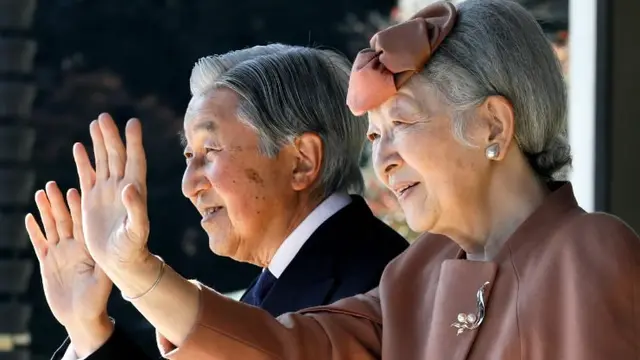Japan's government has chosen April 30, 2019 as the date for Emperor Akihito's abdication, and the following day to be Crown Prince Naruhito's accession, NHK reported, after a meeting by the Imperial House Council ended.
The special panel met earlier on Friday to discuss the date for Emperor Akihito’s planned abdication – the first by a Japanese monarch in about two centuries – clearing the way for the government to formally decide when the 84-year-old emperor will retire.
The 10-member Imperial Household Council is headed by Prime Minister Shinzo Abe and includes lawmakers, royals and Supreme Court justices.
Japan's Prime Minister Shinzo Abe attends a meeting of the Imperial Household Council to discuss the timeline for the abdication of Japan's Emperor Akihito at the Imperial Household Agency in Tokyo, Japan, December 1, 2017.
Akihito, who has had heart surgery and treatment for prostate cancer, said in rare remarks last year that he feared age might make it hard to fulfill his duties.
Once considered divine, Japan’s emperor is defined in the post-war constitution as a "symbol of the state and of the unity of the people," but has no political power.
Akihito, along with Empress Michiko, has spent much of his time on the throne seeking to soothe the wounds of the World War Two, which was fought in his father Hirohito’s name, and consoling victims of disasters or other woes. He is widely respected by many average Japanese.
Akihito has consistently urged the people never to forget the horrors of war, remarks that have garnered increased attention since Abe took office in 2012 and sought to adopt a less apologetic tone toward Japan’s past military aggression.
Japan's Princess Aiko (R) talks with her father Crown Prince Naruhito about her school trip at Togu Palace in Tokyo, Japan, in this handout photo taken on November 23, 2017 and provided by the Imperial Household Agency of Japan.
"He redefined the job. He wanted to modernize the monarchy and take care of the unfinished business ... and bring the imperial household closer to the people," said Jeffrey Kingston, director of Asian studies at Temple University Japan.
"He’s been remarkably successful on all fronts. He is deeply admired and respected. His moral authority is unquestioned."
Once Akihito steps down, a new “imperial era” will begin, replacing the current "Heisei" or “achieving peace” period which began on January 8, 1989, the day he took the throne.
(REUTERS)
 简体中文
简体中文



